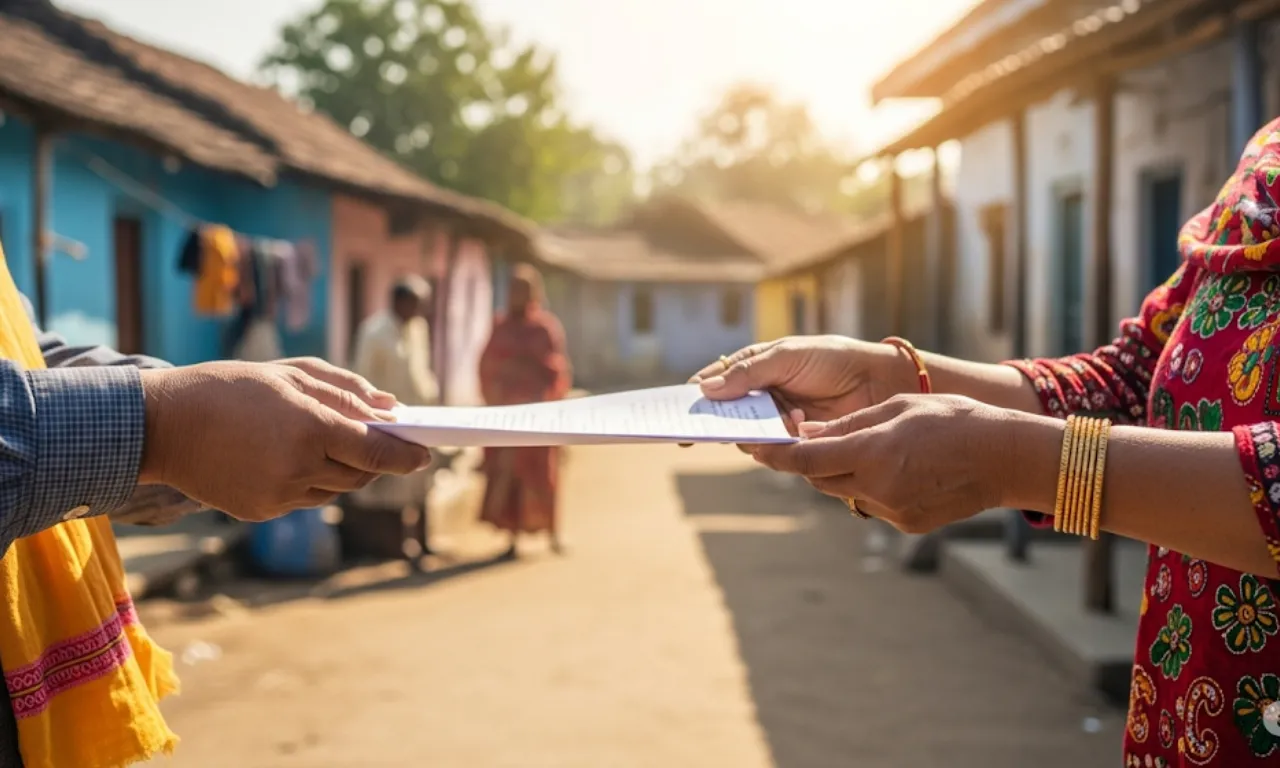- Gujarat government waives Rs 200 fee under SVAMITVA Yojana, issuing free rural property Sanads to 25 lakh beneficiaries.
- Drone technology used for mapping village lands helps formalize rural property ownership and reduces land disputes.
- Free Sanads open opportunities for bank loans, inheritance claims, and boost legal property documentation in rural Gujarat.
Gujarat government has waived the Rs 200 fee under the Survey of Villages and Mapping with Improvised Technology in Village Areas (SVAMITVA) Yojana, bringing relief to around 25 lakh rural beneficiaries. This scheme makes it free to get rural property Sanads, helping with property ownership documentation and supporting rural development all across Gujarat.
Benefits of Free Sanads Under SVAMITVA Yojana
Removing the Rs 200 fee takes away a major financial obstacle for rural residents who want to document ownership of their land. This waiver especially helps small and middle-income households in Gujarat’s villages by giving them easier access to official ownership certificates without extra cost. With ownership formalized through free Sanads, villagers can confidently claim their legal rights on their land, which helps reduce disputes and makes land record management smoother.
Understanding the SVAMITVA Yojana and Its Impact in Gujarat
SVAMITVA Yojana is a nationwide scheme started by Prime Minister Narendra Modi, run by the Ministry of Panchayati Raj. It uses drone technology to survey village lands. In Gujarat, this technology has played a big role in mapping inhabited lands to issue official property cards and Sanads. This kind of digital documentation formalizes property ownership in rural areas and helps lower land disputes.
Also Read – Gujarat Foreign Education Loan Scheme -Empowers Students with Affordable Loans
How to Get Your Free Rural Property Sanad in Gujarat
To get your free property Sanad under this scheme, rural property owners in Gujarat can follow these steps:
- Visit the local Gram Panchayat office in your village where SVAMITVA activities are going on.
- Submit your claim or request for property ownership documents along with your ID and land details.
- Authorities will check your property using drone-mapped data linked to your area.
- Once verified, the Sanad (ownership certificate) is issued free of charge, officially recognizing your property rights.
This simple, free process encourages more rural residents to easily make their property rights official.
Helping Rural Households: Financial and Legal Benefits
The Sanad issued under SVAMITVA offers several advantages beyond just proof of ownership:
Inheritance Claims: Clear ownership makes it easier for families to manage inheritance smoothly and protect land rights across generations.
Taxation and Governance: Accurate land records aid in fair taxation and improve governance at the village level.
Gujarat’s Rural Landscape: People and Economy
Rural Gujarat is home to about 42.2 million people, around 57.4% of the state’s population. Even with fast urban growth, villages are the main part of Gujarat’s economy and culture. Farming is the main occupation, so having secure land ownership is key for their livelihood.
However, many rural residents earlier faced problems due to lack of formal property documents. Low literacy and legal complications often made it hard to protect property rights, especially for women. The SVAMITVA Yojana’s launch with free Sanads tackles these issues, helping rural households get proper recognition and strengthen their economic and social status.
| Aspect | Details |
|---|---|
| Scheme Name | Survey of Villages and Mapping with Improvised Technology in Village Areas (SVAMITVA) Yojana |
| State | Gujarat |
| Fee Waived | Rs 200 per Sanad |
| Beneficiaries | About 25 lakh rural residents |
| Total Rural Population | 42.2 million (57.4% of Gujarat’s population) |
| Implemented by | Ministry of Panchayati Raj, Govt. of India |
| Official Website | https://panchayat.gov.in/, https://svamitva.nic.in/ |
By making rural property Sanads free, Gujarat not only reduces the financial burden but also encourages a culture of official legal land ownership. This step helps villagers manage their resources better and opens new paths for sustainable growth.

